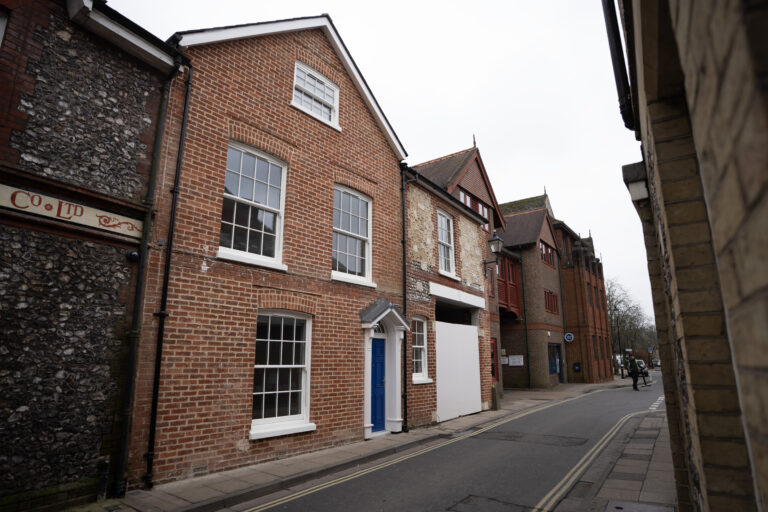59 Colebrook Street is a historic property dating back to 1670. Originally serving as a fire station and police station for the Guild Hall, it later included a coach house in the back. However, after years of neglect, the building had become uninhabitable. The Winchester Council took on the challenge of renovating the property to provide housing for Ukrainian nationals.
Being a listed building, the property posed several challenges in terms of energy efficiency and structural integrity. It suffered from severe dampness, structural instability, rotten wooden windows with single glazing, an outdated boiler system, and ineffective insulation. These issues resulted in high energy consumption, excessive heating costs, and an overall poor living environment.
Cardo, a leading provider of high-quality building maintenance and retrofit services for social housing and public sector buildings, engaged with us to carry out the work for Winchester Council.
Given the limitations of working on a listed building, we carefully planned and implemented solutions that would respect the historic integrity while vastly improving energy efficiency and livability. Our key renovations included:
Funding for this project was made possible through a national grant from the central government, covering a significant portion of the renovation costs. Without this support, a smaller and less centrally located property may have been the only viable option.
The transformation of 59 Colebrook Street has been remarkable. Where once stood a cold, damp, and structurally compromised building, there is now a warm, dry, and energy-efficient home. Key improvements include:
Most importantly, 59 Colebrook Street is no longer just a building; it has become a home for those in need. The collaboration between Cardo, SCIS Group and Winchester Council has set a precedent for future renovations in the city, and plans are already in place to apply these successful strategies to other historic properties in Winchester.




